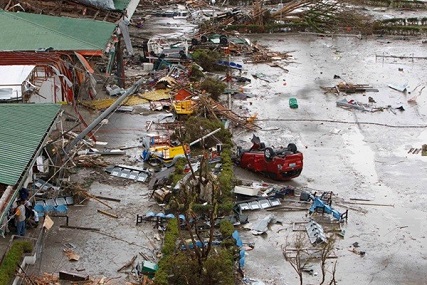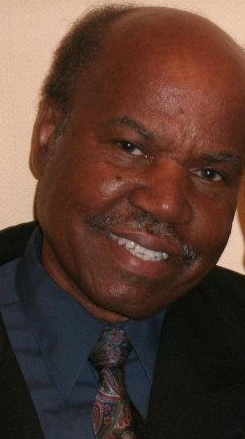All flesh is like grass and all its glory like the flower of grass. The grass withers and the flower falls, but the word of God remains forever.
- 1 Peter 1:24-25
 Whenever I read, hear or see an event, I am always drawn to consider where and how does God enter into the equation.
Whenever I read, hear or see an event, I am always drawn to consider where and how does God enter into the equation.
Such was the case with the typhoon in the Philippines and the disastrous beginning of the Affordable Care Act, two completely seemingly unrelated incidents.
There are three unavoidable factors of life with which everyone, everywhere must contend. They are ubiquitous, universal and fully compliant and in agreement with equal opportunity.
They are Trouble, Death and God.
I know Ben Franklin mentioned taxes but taxes you can evade like Al Capone and so many others did.
The aforementioned big three, however, are the lot of every man.
You can run and hide but you will not elude them forever. They will find you.
Trouble depicted by the Biblical character Job -- "I am not at ease, nor am I quiet: I have no rest, but trouble comes. (Job 3:27)
Death depicted in the New Testament book of Hebrews It is appointed unto man to die once, and after that comes the judgment. (Heb. 9:27)
God depicted himself as the most certain thing in life in the book of Revelation -I am the alpha and the omega, the first and the last, the beginning and the end. (Rev. 22:13)
Therefore, you shall not nor cannot, buy, bribe or bully your way out of dealing with them.
That being said, the sooner you realize and come to grips with these inescapable verities of life, the sooner you will appreciate that all human beings are subject to the same conditions. You will become more humble and sympathetic to the weak and frail amongst us.
 This brings us to the Affordable Care Act. A wealthy entrepreneur has predicted the demise of that endeavor because it is based on the faulty premise that enough healthy young people will buy health insurance to offset the risks and burdens of older sicker patients. He states that will not happen.
This brings us to the Affordable Care Act. A wealthy entrepreneur has predicted the demise of that endeavor because it is based on the faulty premise that enough healthy young people will buy health insurance to offset the risks and burdens of older sicker patients. He states that will not happen.
In effect, he is saying he is not persuaded good things of you.
If you are a young person reading this column, he essentially is predicting that you are so selfish, unconcerned, young and immortal that you will not bother about the vicissitudes of life.
You are all powerful so you can halt the move of a typhoon.
Lou Gehrig's disease does not know your address.
Good health is your prerogative and you will prevent the inexorable march of death to your house.
Moreover, you are an orphan and not a parent so you have no children stricken with juvenile diabetes or cancer nor parents afflicted with the scourge of Alzheimer's or Parkinson's.
The other side of eternity, salvation and God are not problems for you because Stephen Hawking, Richard Dawkins and other intellectuals have convinced you they are unrealistic fairy tales and so much wishful thinking.
If what I have described above does not pertain to you but rather repulses you and offends your sensibilities, you now understand the meaning of the parable of "The Good Samaritan." You grasp what Jesus meant when He said, "Thou shalt love thy neighbor as thyself."
The lesson learned from Tacloban, Philippines, Newtown, Mass. or Columbine, Colo. is that in a moment, an instant, in the twinkling of an eye, life and circumstances can change.
Someday everybody will need help.
We are not all powerful and we cannot stop the wind.
There is always something or someone, somewhere that is more powerful than we and will compel us to do something that we do not wish to do.

We are helpless to go right when life demands that we go left.
We cannot control every situation and we need God who knows everything, can do anything and is everywhere. He loves you but He does not need you and whether you believe, serve or worship Him, in the final analysis, it does not matter because you will not short circuit or thwart His purposes on the earth.
Since only God is all sufficient and you cannot add to or subtract anything from him, your sole purpose and meaning is the welfare of mankind for whom he sacrificed His life.
Once you realize how inadequate you are and how prone you are to the next unforeseen disaster, that smug countenance on your face and the haughty attitude will disappear.
The next time you hear an appeal for Convoy of Hope, Samaritan's Purse, encounter that familiar red kettle of the salvation army or view images of devastation, whisper softly in your heart, "There but for the grace of God go I." Then your natural, quick and ready response shall be, "How can I help?"
As that wise peanut farmer George Washington Carver sagely warned, "As you mature in life always remember to be:
Gentle with the young,
Understanding of the weak and the strong,
Compassionate with aged,
For one day you would have been all of these.
 V. Knowles is a husband and father with an interest in penning issues that serve to uplift mankind. He melds his love for Classic literature, The Bible and pop culture - as sordid as it may be - into highly relatable columns of truth, faith and justice. Hence the name: Just Thinking. If he's not buried in a book or penning his next column, you may find him pinned to his sectional watching a good old Country and Western flick.
V. Knowles is a husband and father with an interest in penning issues that serve to uplift mankind. He melds his love for Classic literature, The Bible and pop culture - as sordid as it may be - into highly relatable columns of truth, faith and justice. Hence the name: Just Thinking. If he's not buried in a book or penning his next column, you may find him pinned to his sectional watching a good old Country and Western flick.

